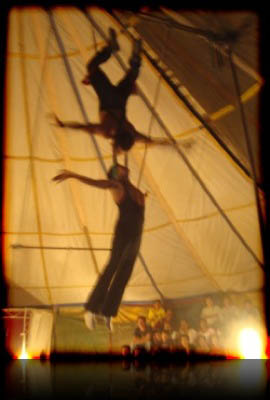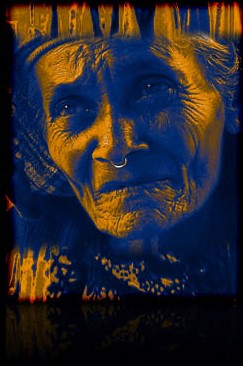Local Stagings, Global Productions: The Theatricality of Food Rituals in Landless Movement
DOI:
https://doi.org/10.25071/1913-5874/37350Abstract
While most scholarly work in the 1990s focused on the use of ethnic identity and indigeneity as a critical tool for movement building in Latin America, this article turns toward new performative strategies in the 2000s. Through food performances—from showing and boasting about small-scale production to collective practices of cooking and feeding activists from a common pot—MST-Bolivia teaches campesinos about the importance of reclaiming land, territory, and food systems for indigenous peoples. The discourse of food sovereignty respatializes agriculture from global and corporate arenas to the local, as MST activists demand that food should be first and foremost a right and secondarily an item of trade. Yet there is no purity to their politics: daily contradictions exist between public declarations of sovereignty and collectivity and individualistic needs and desires. Despite such tensions, MST transports food traditions from regional to international arenas where they reassemble highly flexible organizational strategies capable of providing food for thousands of activists.
References
Allen, Catherine J. The Hold Life Has: Coca and Cultural Identity in an Andean Community. Washington: Smithsonian Institute Press, 1998.
Bastien, Joseph W. Mountain of the Condor: Metaphor and Ritual in an Andean Ayllu. St. Paul: West, 1977.
Bigenho, Michelle. Sounding Indigenous, Felling Bolivian: Authenticity in Music Performance. Houndmills, England: Palgrave, 2002.
Bellow, Walden. Manufacturing a Food Crisis. The Nation, May 15, 2008.
Black, Stephanie. Life and Debt. 86 min. Tuff Gong Pictures. Hollywood, 2001.
Boal, Augusto. Theater of the Oppressed. New York: Urzien Books, 1979.
Bourdieu, Pierre. Outline of a Theory of Practice. Trans. Richard Nice. Cambridge, MA: Cambridge University Press, 1977.
Brush, Stephen B. Mountain, Field, and Family: The Economy of Human Ecology of an Andean Village. Philadelphia: University of Pennsylvania Press, 1977.
Burbach, Roger. The Rise of Food Fascism: Allied to Global Agribusiness, Agrarian Elites Foment Coup in Bolivia. Electronic document, http://www/counterpunch.org/burbach07012008.html, accessed November 10, 2008.
Conquergood, Dwight. Performing as Moral act: Ethnical dimensions of the ethnography of performance Literature in Performance 5(2) (1985): 174-208.
Health Theatre in a Hmong refugee camp: Performance, Communications, and Culture. The Drama Review 32(3) (1988):174-208, Performance Studies Interventions and Radical Research. The Drama Review 46(2) (2002): 145-56.
De Certeau, Michel. The Practice of everyday life. Trans. Steven Randall. Berkeley: University of California Press, 1984.
Ellwood, Wayne. The No-nonsense Guide to Globalization. Oxford: New Internationalist, 2007.
Escobar, Arturo and Sonia Alvarez. The Making of Social Movements in Latin America: Identity, Strategy and Democracy. Boulder, CO: Westview Press, 1992.
Frazier, Leslie Jo and Deborah Cohen, Defining the Space of Mexico ’68: Heroic Masculinity in the prison and Women in the Streets. Hispanic American Historical Review 83(4) (2003): 617-660.
Friedsky, Jean. Land war in Bolivia: conflict for power and territory. Narco News Bulletin 39. http://www.narconews.com/Issue39/article1470.html, accessed September 1, 2007.
Freire, Paulo. Pedagogy of the Oppressed. New York: Continuum, 1970.
Gill, Lesley. Peasants, Entrepreneurs, and Social Change: Frontier Development in Lowland Bolivia. Boulder: Westview Press, 1987.
Teetering on the Rim: Global Restructuring, Daily Life, and Armed Retreat of the Bolivian State. NY: Columbia University Press, 2000.
Godelier, Maurice. The Concept of Social and Economic Formation: The Inca Example. Perspectives in Marxist Anthropology. Cambridge: Cambridge University Press, 1977.
Goffman, Erving. Presentation of Self in Everyday Life. New York: Doubleday, 1956.
Goldstein, Daniel. The Spectacular City: Violence and Performance in Urban Bolivia. Durham: Duke University Press, 2004.
Guss, David. The Festive State: Race, Ethnicity, and Nationalism as Cultural Performance. Berkeley: University of California Press, 2000.
Gustafson, Bret. By Means Legal and Otherwise: The Bolivian Right Regroups. NACLA 20(7) (2008): 1-7.
New Languages of the State: Indigenous Resurgence and the Politics of Knowledge in Bolivia. Durham, NC: Duke University Press, 2008.
Harris, Olivia. Labour and Produce in an Ethnic Economy, Northern Potosi. In Ecology and Exchange, D. Lehmann, ed. Cambridge: Cambridge University Press,1982.
Ethnic Identity and Market Relations: Indians and Metizos in the Andes. In Ethnicity, Markets, and Migration in the Andes: At the Crossroads of History and Anthropology, Olivia Harris and Brooke Larson, eds. Durham: Duke University Press, 1995.
Hertzler, Douglas. Agrarian Cultures of Solidarity: Campesino Unions and the Struggle for Land and Community Development in Santa Cruz, Bolivia. Ph.D. dissertation, Department of Anthropology, University of Iowa, 2002.
Issa, Daniela. Praxis of Empowerment: Mística and Mobilization in Brazil’s Landless Rural Workers’ Movement. Latin American Perspectives 34(2) (2007): 124-138.
Karriem, Razack. The Growth and Transformation of the Brazilian Landless Movement into a Counter-Hegemonic Political Actor: A Gramscian Analysis, Unpublished Manuscript, 2008.
Landless Peasant Movement. Statement from the People’s Movement on Food Sovereignty, US Social Forum, Detroit, Michigan, http://www.mstbrazil.org/?q=node/656, (2008) accessed August 1, 2010.
Madison, Soyini. Acts of Activism, Theater and Performance Theory Series. England. Cambridge University Press, 2010.
McMichael, Philip. Hungry for Profit: The Agribusiness Threat to Farmers, Food and the Environment. NY, New York: Monthly Review Press, 2000.
Mendoza, Zoila. Shaping Society through dance: Mesizo ritual performance in the Peruvian Andes. Chicago: University of Chicago Press, 2008.
Murra, John V. Formaciones económicas y políticas del mundo andino. Lima: Instituto de Estudios Peruanos, 1975.
Peña, Elain. Performing Piety: Building, Walking and Conquering in Central Mexico and the Midwest. Berkeley. Berkeley University Press, 2010.
Paulson, Susan. Body, nation, and Consubstantiation in Bolivian Ritual Meals. American Ethnologist 33(4) (2006): 650-664.
Taylor, Diana. Disappearing Acts: Spectacles of Gender and Nationalism in Argentina’s Dirty Wars. Durham: Duke University Press, 1997.
The Archive and the Repertoire: Performing Cultural Memory in the Americas. Durham: Duke University Press, 2003.
Wachtel, Nathan. Sociedad e Ideología: Ensayos de Historia y Antropologia Andinas. Lima: Instituto de Estudios Peruanos, 1973.
Weismantel, Mary. Food, Gender, and Poverty in the Ecuadorian Andes. Prospect Heights, IL:Waveland Press, Inc, 1988.
Cholas and Pishtacos: Stories of Race and Sex in the Andes. Chicago: University of Chicago Press, 2000.





